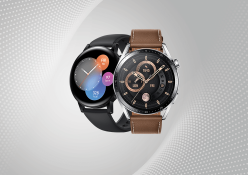In this digital age we are living in, our data is becoming less private with overall internet privacy becoming non-existent. This may not seem like a big deal because many of us allow apps to have access to data on our devices. But if you’re not cautious, there is a lot more to internet privacy and what we allow some of our fave apps to have access to that can negatively affect our mental health.
We can’t avoid data collection because the majority of popular apps and websites require it, and there’s not much way around it – if you don’t accept the terms and conditions, you’re likely not able to use it. But still, don’t think of it as a non-threat just because ‘everyone’ does it. It goes far beyond something you have searched for coming up as a pop-up ad on your Facebook feed a couple of days later, if not the exact same day!
Based on the terms and conditions you agreed to, or something you searched for on Google, for example, you could potentially not have access to certain information due to the apps’ algorithm and it being able to provide you with what it believes you may need based on the data that was previously collected from you. Again, this may seem harmless because it’s showing you what you like, but this could prevent growth and opportunities.
On a more serious note, these algorithms can make something up about you based on your Google searches. The made-up data about you could be completely wrong – like with your gender, ethnicity, religious beliefs – and exclude you from seeing certain things, like ads and posts from certain people and brands. Or the data about you could all be true, but based on prejudice and what you have searched for, they assumed you wouldn’t be interested in seeing a particular piece of content that actually might be what you’re looking for.
‘You can’t really avoid data collection anymore,’ says Sandra Wachter, associate professor at the University of Oxford Internet Institute, who studies the ethical implications of A.I., big data, and technology. ‘People are aware that data collection happens all the time, but they’re not fully aware of what risks that might bear. They think, What’s the big deal? Let them have my email, I get a free app. But the saying is true that if it’s free, you’re not the customer; you’re the product. You’re paying for it—you just don’t know how high the price actually is.’
Besides preventing one from seeing things, data collection can also target adverts to someone that would not be interested in it either, but because of their perceived age (which a lot of the time is true), the algorithm shows it to them anyway in hopes to manipulate them.
One can’t go off the grid to avoid data collection. There are, however, steps you can take to protect your data, and keep negative consequences of digital privacy invasions at bay (like from low-level everyday anxiety to systemic injustices like discrimination and exploitation). This wll, in turn, protect your peace of mind and mental health.
Personalize your settings to protect yourself.
This includes ad and tracking blockers that will minimize your digital footprint and using a VPN that will prevent websites from seeing things such as your IP address. You can even go simpler by putting a sticky note over your computer camera to prevent hackers from watching you. Or by actively choosing not to put your private info out there, so it’s less difficult to find.
Clean up your digital footprint.
If you already have quite a big digital footprint, clear your browser cache, cookies, and sign up for an identity theft program that will alert you of any info that is leaked.
Educate yourself on internet privacy.
By making these small changes and being aware of what is going on out there, you are already a step in the right direction.
Words By Fran Rattle
Photography: Pexels





